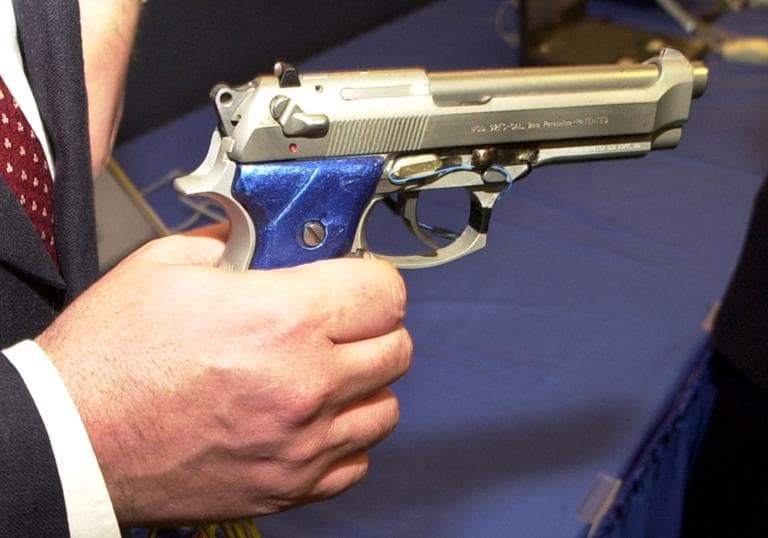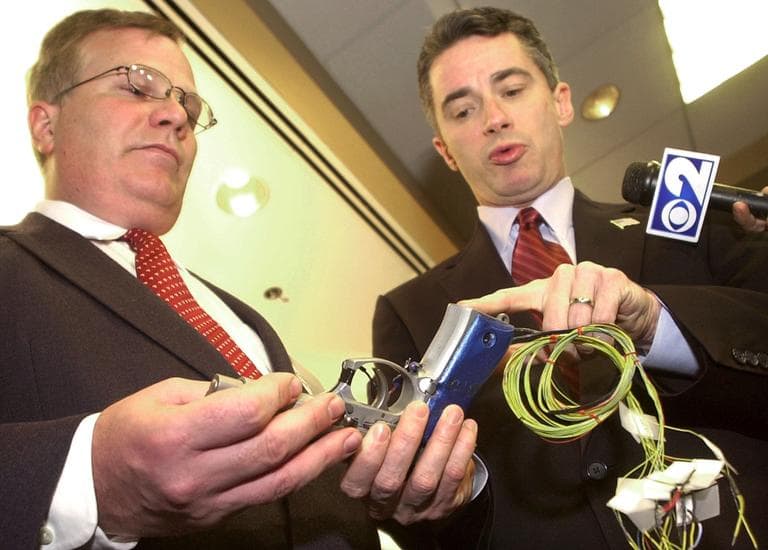Advertisement
Could 'Smart Guns' Be Part Of Congress Deal?
Resume
"Smart guns," or guns that will only fire for an authorized owner, are back on the radar.
The White House has called for pushing ahead with smart gun technology.
James Bond has one in the movie "Skyfall," but in the real world, the technology is not quite there yet, according to smart gun activist and investor Jonas McCord.
McCord's company Biomac Systems is working on smart gun technology, and he's not alone.

The New Jersey Institute of Technology has been working on a gun that will recognize the owner's grip.
Trigger Smart, an Irish company, relies on radio frequency embedded in the gun and in a ring or bracelet the owner is wearing. Without the owner's ring or bracelet, the gun will not fire.
Armatix GmbH, a German company, has a personalized gun it hopes to put on the market in the U.S. this year. The gun will only shoot if it's in range of a radio device which carries the owner's biometric data.
The Russian government is also supporting work on an gun with an electronic chip that would prevent unauthorized users from firing it.
McCord tells Here & Now's Robin Young that the problems with smart guns include:
- Many of the technologies require that the owner always be wearing something to fire a gun - not very useful if you are trying to fight off a robber in the middle of the night.
- Most existing technologies are limited to one gun authorized for one owner, when most people want to be able to share guns with family members.
- The biometric data is usually "graphic" - palm prints, finger prints - and it can be slow to recognize the owner.
- Most of the technologies are only about 91 percent accurate.
The U.S. is at risk of being left behind in the arms race for smart guns, McCord said.
He's calling for a federal Technology Waiting Law like the one New Jersey already has. It would require that once reliable smart gun technology exists, all guns should be required to have the technology.
McCord believes that would provide a financial incentive for industry to develop recognition technologies that would be 99.99 percent accurate, and also be useful for normal commercial transactions.
- Huffington Post: 'Smart Guns,' Designed To Be Fired Only By Owner, Have Battled History
- U.S. News & World Report: Why Both the Pro- and Anti-Gun Lobby Are Against 'Smart Guns'
- The Blaze: Is The Tech Up To Snuff?
- Slate: We Have the Technology To Make Safer Guns: Too bad gunmakers don’t care
Would you support requiring all guns sold to be "smart guns," once the technology becomes widely available? Let us know on Facebook.
Guest:
- Jonas McCord, founder and CEO of the nonprofit Biomac Foundation, which supports the research and development of smart guns, and lobbies for them. He is also founder and CEO of the for-profit Biomac Systems.
This segment aired on February 28, 2013.